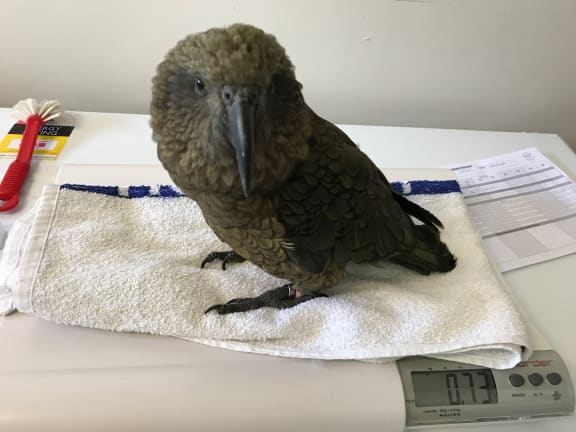

A kea is weighed in at the Wildlife Hospital Dunedin. Two kea have been treated since the Hospital opened in January 2018, one with lead poisoning and one with a concussion. Photo: Dr. Lisa Argilla
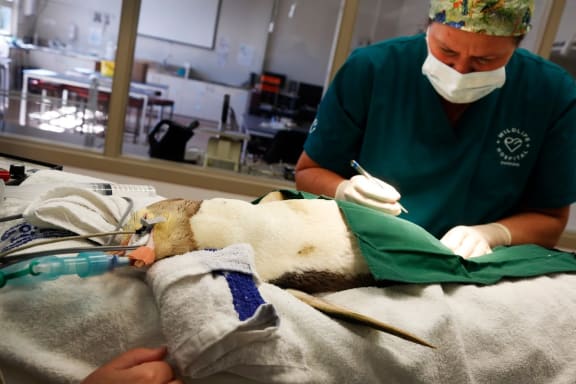

Dr. Lisa Argilla performs surgery on a yellow-eyed penguin. Photo: Murdo McLeod
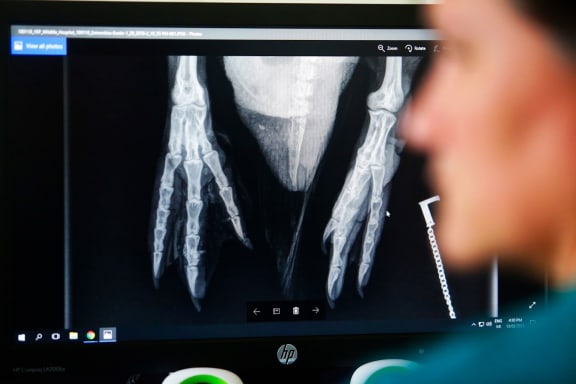

Dr. Lisa Argilla analyses a yellow-eyed penguin x-ray. Photo: Murdo McLeod
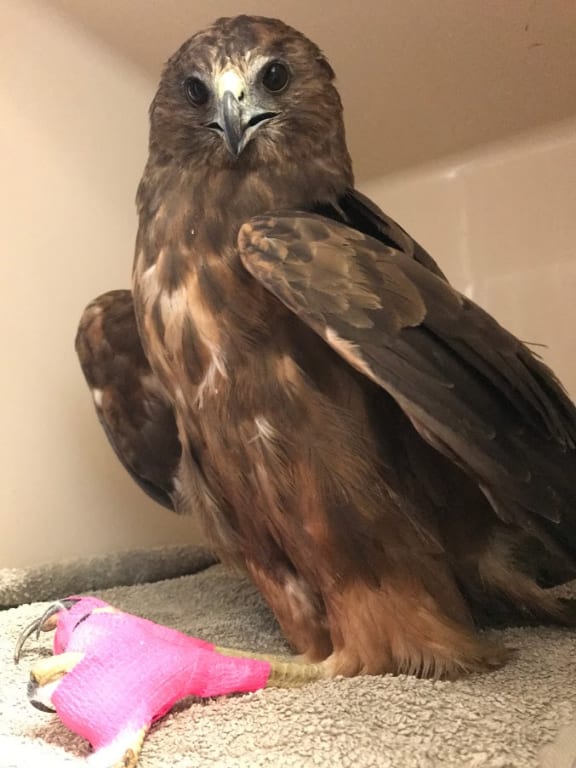

This harrier hawk, or kahu, was being treated for lead poisoning. The bandages protect the harrier's feet from being pierced by its own talons, a neurological reaction to the lead in its bloodstream. Photo: Dr. Lisa Argilla.
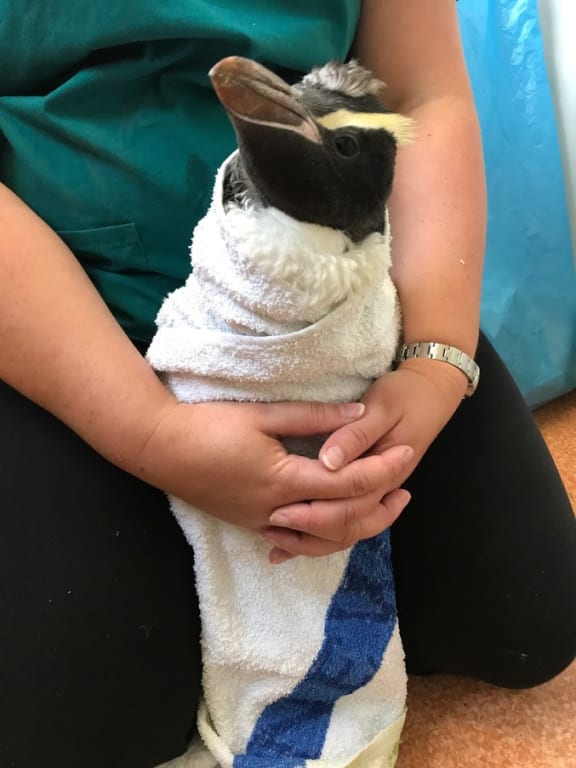

An erect-crested penguin is held by Senior Wildlife Vet Nurse Angelina Martelli in preparation for feeding. The Wildlife Hospital Dunedin has treated several erect-crested penguins this year, some of which were attacked by dogs while moulting. Photo: Dr. Lisa Argilla.
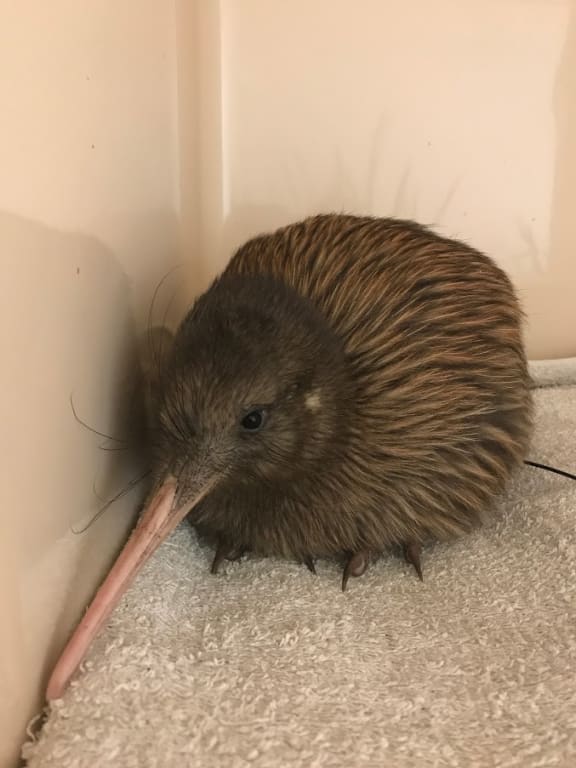

A Haast tokoeka (kiwi) is treated for an infection at the Wildlife Hospital Dunedin, one of six seen by the hospital this year . This kiwi lives at Orokonui Eco Sanctuary in Dunedin. Photo: Dr. Lisa Argilla.
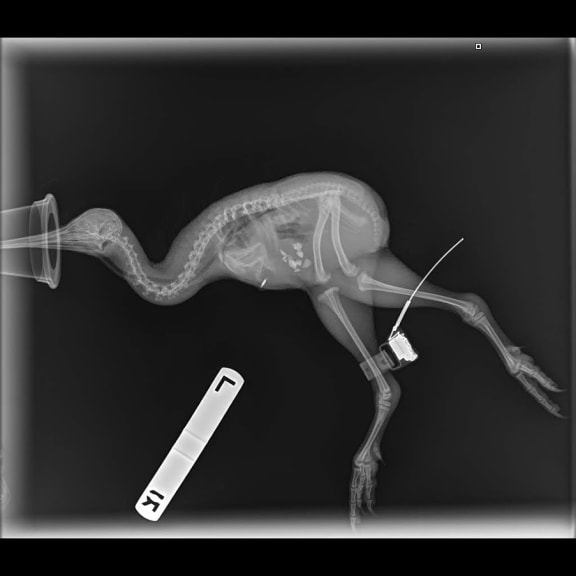

An x-ray of a Haast kiwi. Note the location transmitter attached to its leg. Photo: Wildlife Hospital Dunedin.
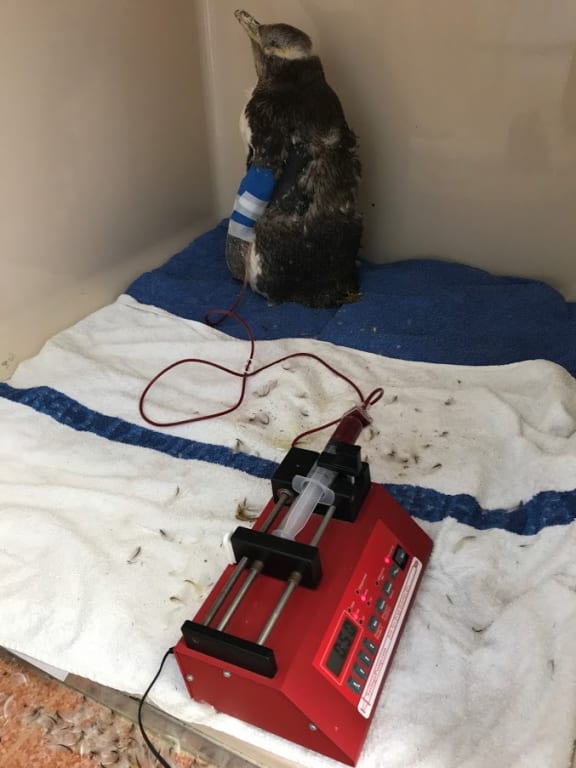

A yellow-eyed penguin receives a blood transfusion at the Wildlife Hospital Dunedin. Photo: Dr. Lisa Argilla.
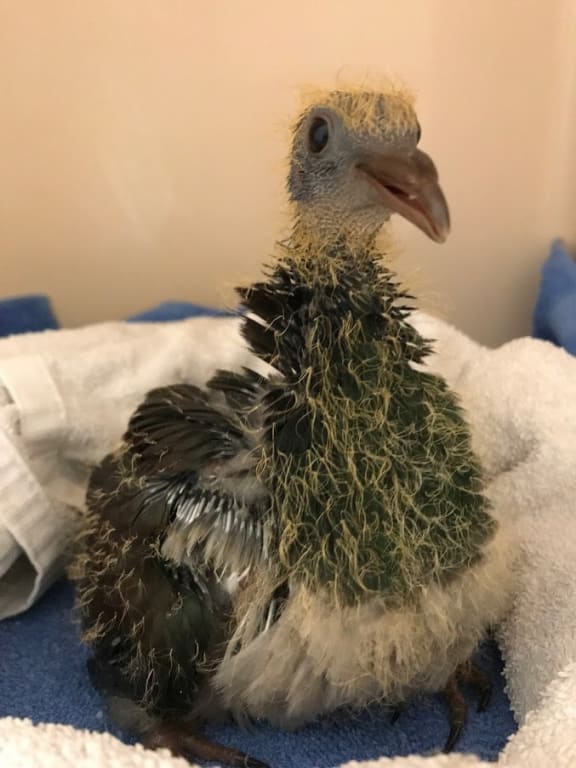

A juvenile kereru, or native NZ pigeon, sparked a lively debate on the Wildlife Hospital's Facebook page - cute or ugly? Kereru are the second most common species treated at the Hospital in 2018. Photo: Dr. Lisa Argilla.
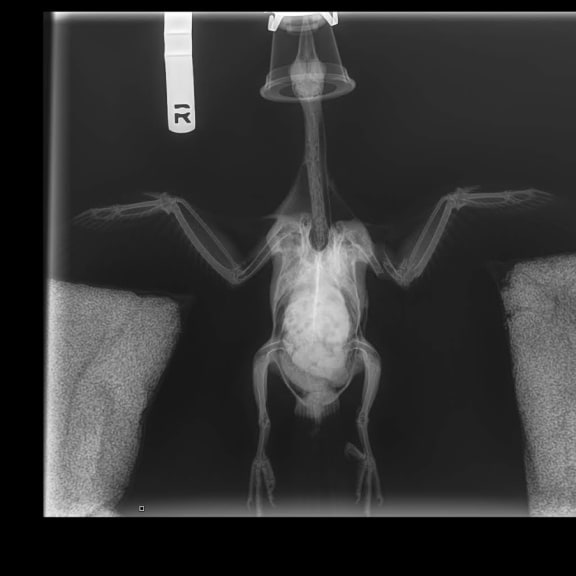

An x-ray of a kereru. Photo: Wildlife Hospital Dunedin.
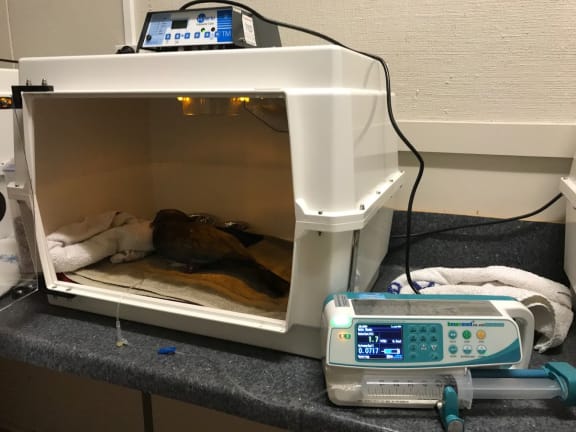

A kereru receives treatment in one of the Wildlife Hospital Dunedin's ICU incubators, as well as medication from a syringe driver. Both pieces of equipment were donated by individuals who support our work: a vet who ran the Christchurch marathon to raise money for us, and a woman who used the donation as a memorial to her late mother. Photo: Dr. Lisa Argilla.
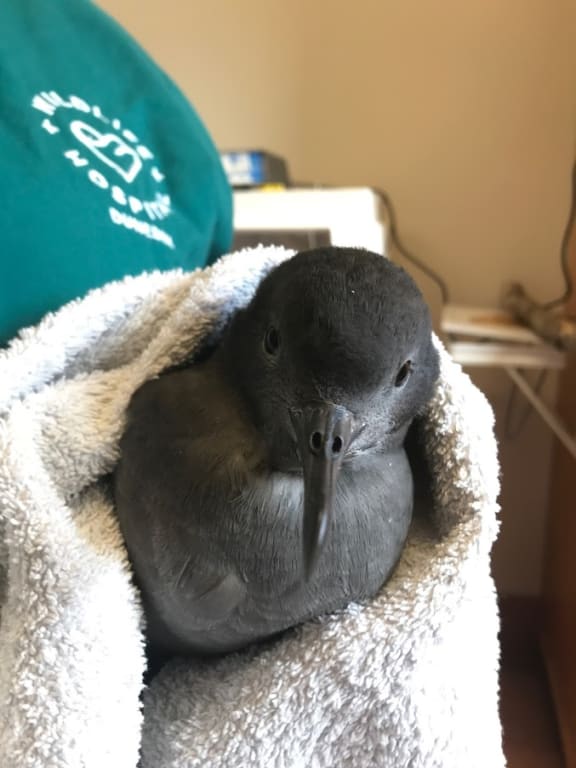

A sooty shearwater brought in from the Dunedin city centre, where it had become grounded.
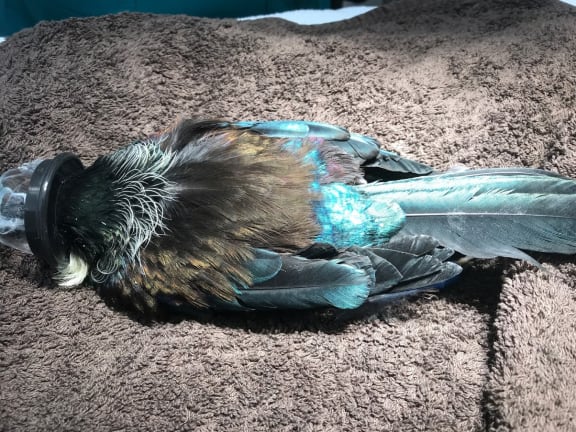

A tui is sedated prior to being x-rayed. The Otago Community Trust donated a state-of-the-art digital x-ray machine to assist with our operations. Photo: Dr. Lisa Argilla.
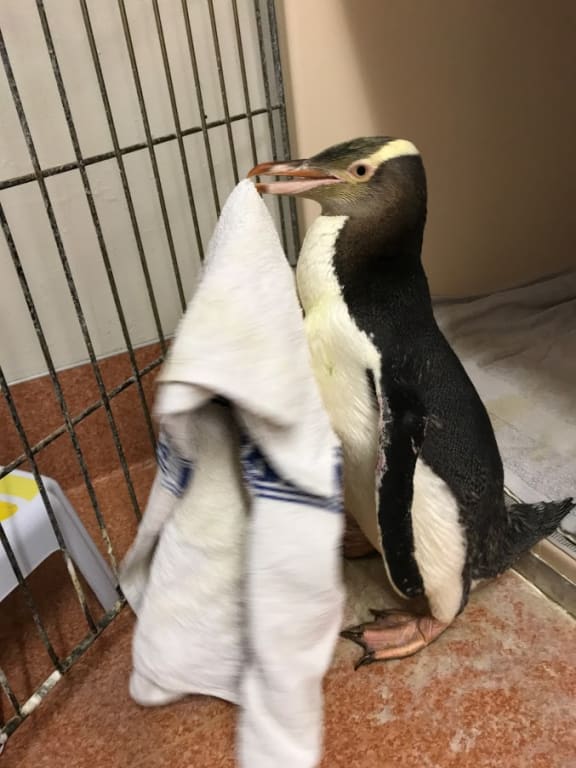

A yellow-eyed penguin patient indicates it is time to clean its cage and provide fresh towels. Photo: Dr. Lisa Argilla
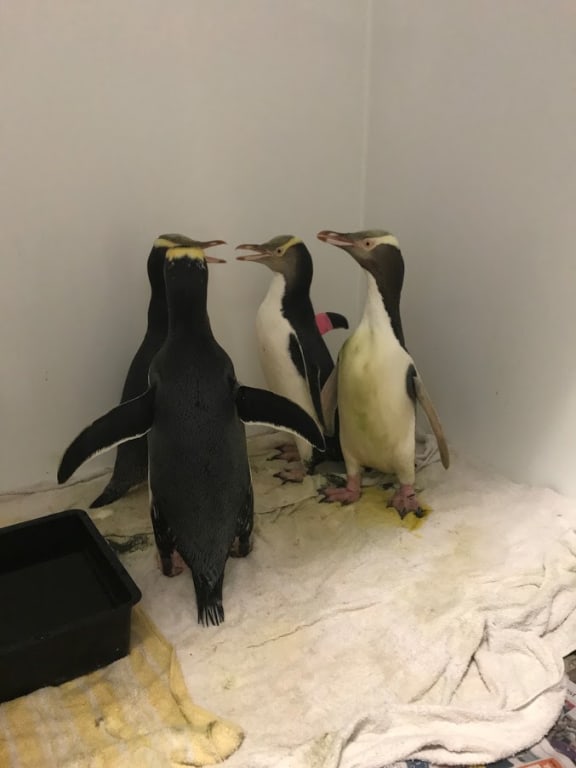

Yellow-eyed penguins compare notes on their stays at the Wildlife Hospital Dunedin. More than 70 of these endangered penguins have been treated in Hospital in 6 months. Photo: Dr. Lisa Argilla.
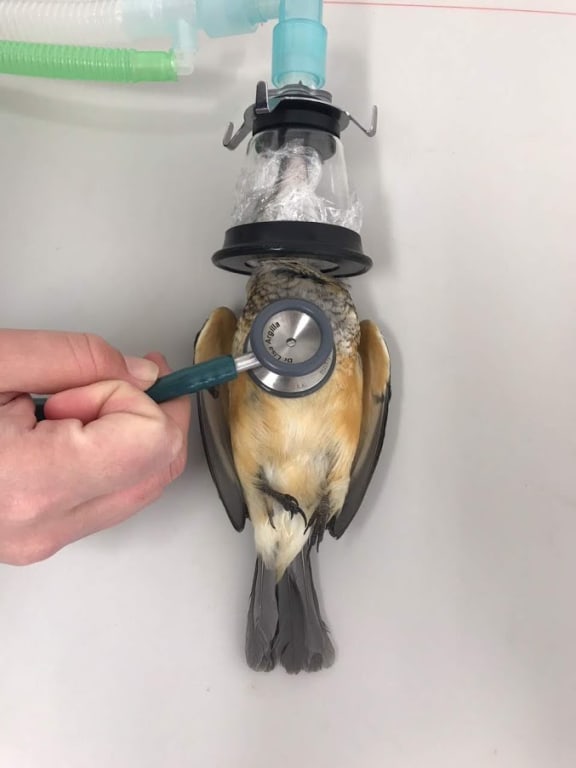

A kingfisher is sedated for x-ray. Photo: Dr. Lisa Argilla.
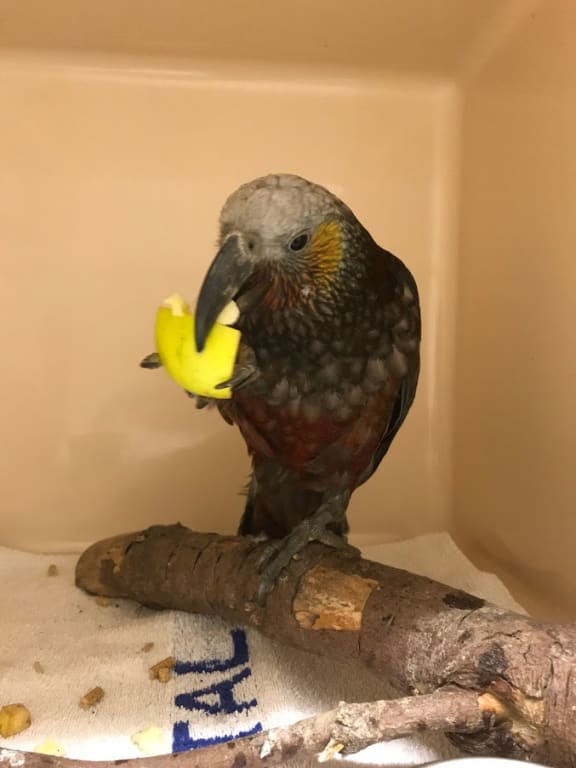

A kaka perches on a piece of native wood while snacking. The kaka in Hospital this year have been our most mischievous patients. Photo: Dr. Lisa Argilla.
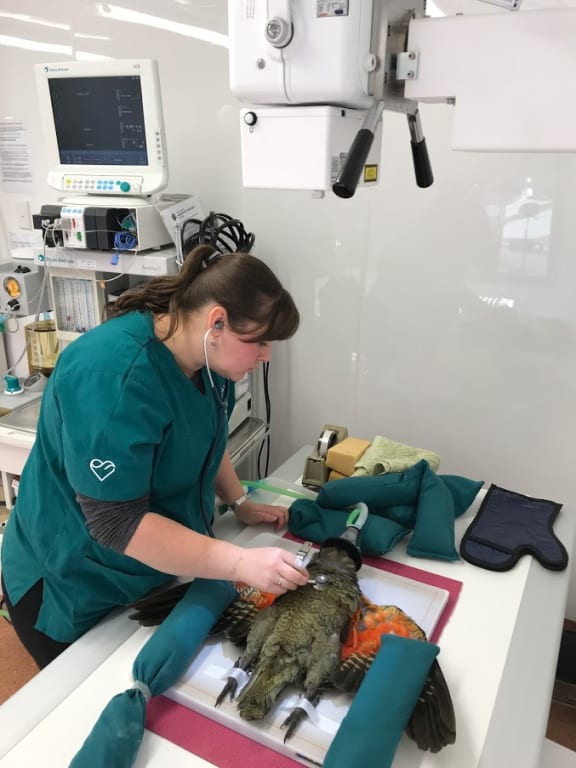

Senior Wildlife Vet Nurse Angelina Martelli x-rays a kea at the Wildlife Hospital Dunedin. Photo: Dr. Lisa Argilla.
Dunedin's Wildlife Hospital says the issue of its long term funding must be addressed. The Wildlife Hospital, based at Otago Polytechnic is the only facility of its kind in the South Island, and treats a wide variety of animals, including native birds, penguins, seals, and sea lions.Before it opened, in January of this year, endangered species were flown to the North Island for treatment, impacting significantly on survival rates. Currently, in addition to public donations keeping the hospital up and running - the Dunedin City Council has committed to supporting it for three years. But the Otago Regional Council has decided not to give it any additional funding through its long term plan. Jordana Whyte the Wildlife Hospital Trust 's secretary







































